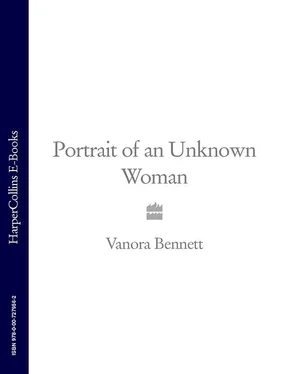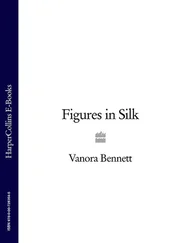But it wasn’t all laughter and strawberries. There was always something sad about John Clement too: a sense of loss, a softness that I missed in the bright, brittle Mores.
He found me alone in my room one rainy Thursday, crying over the little box of things I’d brought with me from Norfolk. My father’s signet ring: I was remembering it on his little finger – a great sausage of a finger. And a prayer book that had belonged to my mother, whom I’d never seen, who died when I was born, but who my father had told me looked just like me – dark, and long-legged, and long-nosed, and creamy-skinned, with a serious demeanour but the hope of mischief always in her eyes. I didn’t remember much about my real father (except the official fact that he was a knight who left me just enough of a dowry to put me on the market for adoption by rich Londoners after his death). But I still felt the warmth of him. He was a bear-hugger with a red face and a shock of dark hair. And when he had you inside one of his embraces, half-stifled but happy, you knew he’d always keep you safe. In his arms, talking about the person we’d both lost, so gently and fondly that our yearning for her almost re-created her. She would be kneeling at her prayers, with the book in hand. (That was the only way I could imagine her – like she was in the effigy in the chapel – impossible to picture what it would have felt like for this perfect woman to have touched or talked to me.)
My father and I were united by this love. So nothing prepared me for them bringing him back from hunting one morning on the back of his horse. He’d broken his neck at a jump – a foolish sort of death. No one comforted me. You’re not really a child any more at nine. I dressed myself for his funeral, and dropped my own handful of soil on his coffin, and began several years of quiet life in corridors: watchful, eavesdropping on the lawyers and relatives as they made plans for me; picking things up, magpie fashion, storing away my few memories and what tokens of my parents I could before I was sent away to be watchful in other people’s corridors. My mother had known Thomas More long ago, in London, before her marriage. It was a whim on his part – a kindly whim – to take me. But he wanted me to think of him as my father from now on. He told me that, with a sweet look on his face, when I turned up at the Old Barge.
Of course I knew nothing back then about how famous this man’s mind had become all over Europe. And I had no clue that, because of my proximity to him, I too would now be moving in the kind of exalted intellectual circles where you could find a man of genius in every room in the house, with one or two to spare on a good day. Or that we girls – I was to have several new ‘sisters’ – would be trained up to be Christendom’s only women of genius. All I noticed on that first day was that the stranger I was to call ‘Father’ had a gentle face: kindly, with its dark features full of life and light. I warmed to him at once, to the face and the smile, Thomas More’s compact body and the sense he gives everyone that only their wellbeing is important to him. Even if this stranger never quite replaced the memory of my real father, Thomas More’s presence was comforting and flattering enough that the country child I still was then found herself eagerly trying out the word ‘Father’ as she looked at him, full of a hope she was too young to understand.
Life with the Mores had turned out to be many kinds of joy I could never have imagined at the age of nine; and now I couldn’t think of living any other way or being anyone except a bit-player in this familiar company of mighty intellects. But the reality of my relationship with Father had never lived up to those first hopes. He was kind, proper, and distant. There were no embraces, no comforting, no special moments. He kept me at arm’s length. He saved his hugs and horseplay for his own Margaret, Cecily, Elizabeth and John.
He saved his cheerful banter for their stepmother Alice, who came to him a widow eight years older than him, with her own estates and her own strong commonsensical views on life, just a year before I came to the house. Father’s foreign houseguests found the new Mistress More harder going than the soft-spoken first wife. If you went along the upstairs corridor late at night and listened to what Erasmus and Andrew Ammonius were whispering in Greek, you’d always be sure to hear the words ‘hag’ and ‘hook-nosed harpy’ somewhere in the conversation. But More wasn’t as delicate a flower as his learned foreign friends. He gave as good as he got from the Dame (we children all called her that, half-jokingly – the name seemed to suit her). He joshed back like a real Londoner, enjoyed her plain cooking and ribald talk, and after his attempts to interest her in Latin had failed, he had some success in making her at least learn music. Father’s new marriage seemed to suit something robust and down-to-earth in him, even if it coincided with – and perhaps caused – the end of some of his humanist friendships. In many ways it suited me and the other wards they adopted too, since no one could have been kinder or run a more welcoming home than Dame Alice. But no one treated me like a beloved child. And I’d have given almost anything for someone to act as though I was special.
For the first few years I was there I almost never dropped my guard except in the books I started reading (something I’d never have done if I’d stayed in Norfolk). Without feeling truly accepted by my new father, I found it hard to make friends with my new stepmother and sisters and brothers. An empty heart was safer than the darkness. At night I would wake up with jaws aching from not crying; eventually they put me in a room by myself because I ground my teeth in my sleep. Being by myself was both welcome and frightening: frightening because I didn’t know what to do with the hot, dark, snivelling, smeary, gut-wrenching, dog-howling breathlessness of the misery that sometimes came to me now when there was no one to pretend to.
Until the teacher, with his big frame and his floppy dark hair, appeared when I was too lost in my feelings to stop, and stood in front of me with his own eyes filling with tears, just like mine. ‘I understand how you feel, little Meg,’ he said softly, understanding everything with so few words that my shame gave way to wonder. ‘I lost my own father when I was a boy. I’m an orphan like you.’ And he hugged me, and let me scrabble into the dark forgetfulness of his chest and arms like a lost infant and sob my heart out, then found a handkerchief for my eyes, and took me on his walk.
‘Come on,’ he said lightly – looking even a bit naughty and conspiratorial – as we slipped out of the front door while everyone else was sleeping off their midday meal. ‘Don’t let’s wake everyone up.’ It must have been when I was thirteen or fourteen; early in the year; cold, in that London way, with a fierce drizzle beating into our faces. Even so, when we started down Walbrook (paved over by then, already, but our house on the corner had been called the Old Barge since the days when it really had been a brook, and boats had come up it from the Thames), the street stank. Naturally, since the pissing conduit was only a few yards away. Equally naturally, neither of us much wanted to walk in that stink.
‘Tell me …’ John Clement began, with a furrow up his forehead. I thought he might have been about to ask me about my real father, but I could also see that my grown-up tutor didn’t know how to continue or what comfort to give. I didn’t want to encourage him to try; it was too private to talk about. So it may have been me who, taking a rare decision on behalf of someone else, pulled John Clement the other way, out of the odours of Walbrook and into sweet-smelling Bucklersbury Street and the shadow of St Stephen Walbrook – where the paving stones were newer and smoother and the smells were gentler and we were more sheltered from the fitful rain.
Читать дальше












